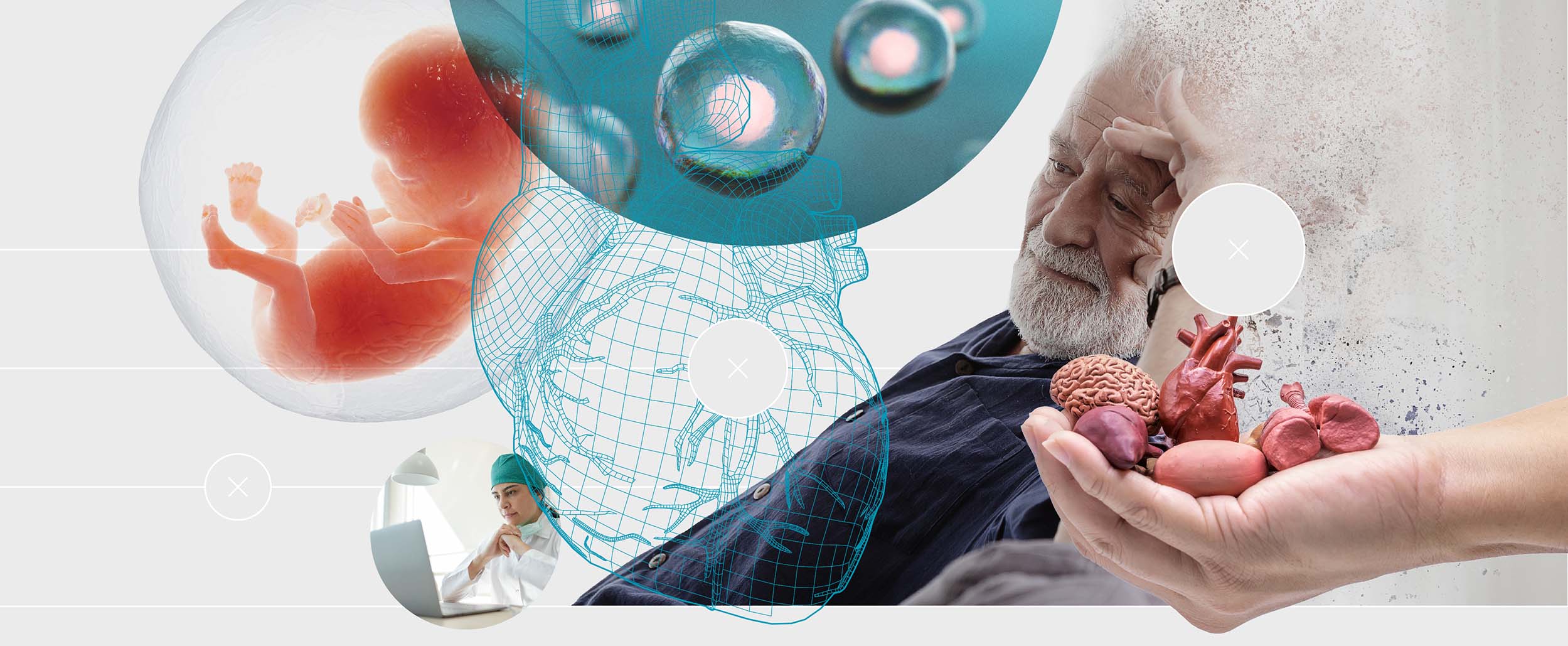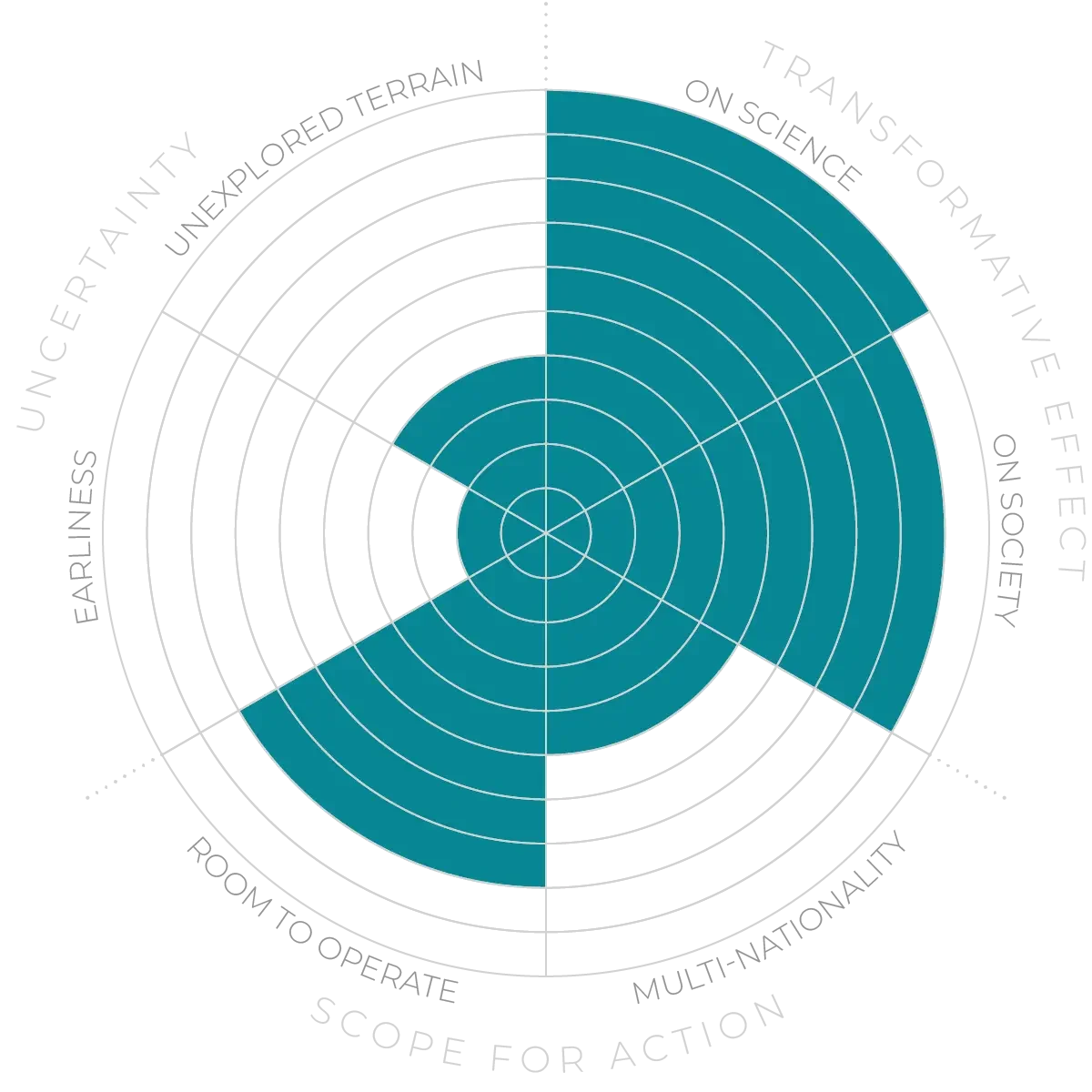On a larger scale, these and other techniques can be used to grow tissues and organs to order. To achieve this, it is necessary to first understand how those tissues develop naturally, and research is under way on a host of body parts, including the immune system, heart,15 muscle,16 breasts17 and skin.18 Replicating the three-dimensional structures of organs and how they change over time will be difficult, but bioprinting will enable this,19 and AI is also likely to help optimise tissue engineering.20
Tissue engineers have worked for decades to develop “scaffolds” on which tissues can be grown.21 Originally made from synthetics, these are increasingly made from biological materials such as human collagen,22 biological films23 and decellularised matrices.24 It is vital to understand how the developing tissues interact with these scaffolds.25
A key challenge is to ensure that implanted cells and tissues do not cause harm. It is becoming possible to “cloak” the cells by adding and then overexpressing a set of immune genes, enabling the introduced cells to survive long-term.26 Another promising precaution is a “safety switch”27 that enables the cells to be quickly killed if they prove harmful28 — or, preferably, multiple safety switches for redundancy.29



